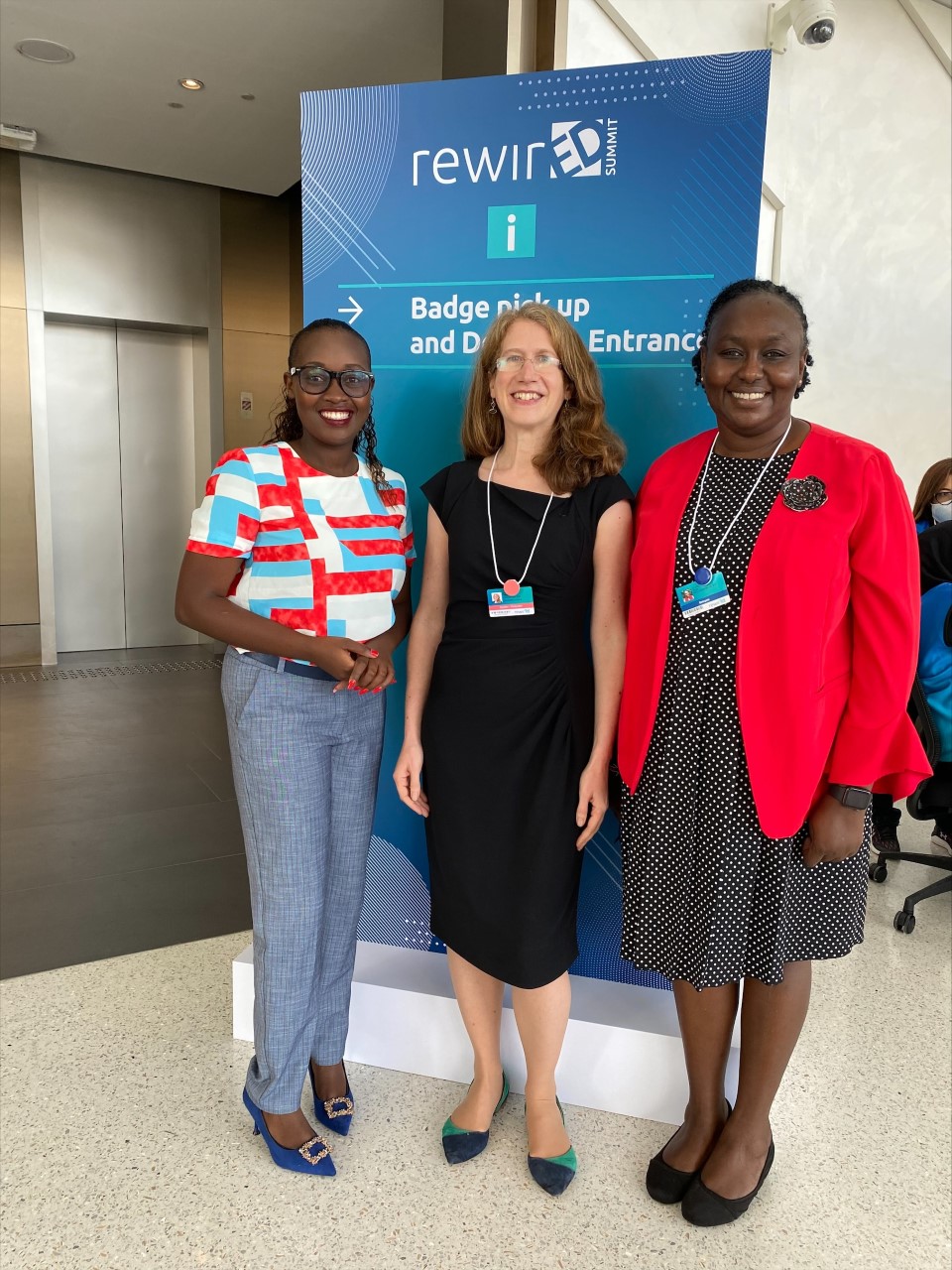Tertiary Education and Young People to Power Africa into the Future
In this blog, Lucy Heady, Chief Executive Officer at Education Sub Saharan Africa (ESSA) shares her reflections from the ESSA panel at the RewirEd Summit in Dubai.

An employer advocating for his business to be taxed to fund youth development, a policy-maker asking us to look through the politics and see her human side, an education leader looking to young people to lead the change. These are the moments that stick in my mind from the RewirEd Summit as I board the plane to fly home after three stimulating days.
On the 12th, 13th, and 14th of December 2021, Education Sub-Saharan Africa (ESSA) joined world education leaders at the three-day Summit to discuss ‘Youth, Skills, and the Future of Work; Innovation in Education and Education Financing’. This bold initiative from Dubai Cares was an opportunity to connect and discuss developments in education in the last two years.
My first in-person event since the global pandemic, it was thrilling to connect with great minds from the global education network. At ESSA we believe that bringing people together is essential to fostering change. As part of our mission to improve tertiary education in sub-Saharan Africa, we spend a lot of time collecting evidence and data topics ranging from how universities can increase the employability of their graduates to supporting women leaders. We know from experience that this evidence and data will only really be used if we provide the forums for the data and evidence to be discussed, picked apart and put together again with the contribution of different perspectives.
Connecting diverse perspectives is particularly important when the evidence serves up a paradox and this was precisely the case for the panel debate hosted by ESSA at the Summit. Research by ESSA and Quilt.AI shows that many young people across the continent are losing faith in the value of education due to high unemployment rates. One might argue that the reality of high unemployment means that pursuing a university and college education is a waste of time. Why bother studying for a job that doesn’t exist? And yet, the demand for advanced skills has never been higher. An influential report from Pricewaterhouse Coopers (PwC) shows that 87% of African CEOs report difficulty in finding employees with the right skills.
We asked our panelists: What is the point of tertiary education at a time of high unemployment? Is it a win-win that gives young people the opportunity to achieve their ambitions while allowing countries to transition to high-tech, high-growth economies? Or is it simply a case of raising false expectations for both young people and their nations?
Representing the voice of young people on the panel, Angel Mbuthia, Secretary for Gender and International Relations at the All Africa Students Union urged universities, employers, and government to create opportunities to enable students to have more innovative ideas. ‘‘Students need to push universities and colleges to offer industry-relevant courses as work is changing,’’ she asserted.
The CEO of Quilt.AI, Anurag Banerjee, pushed for a stronger role for employers in tertiary education; ‘‘Young people need to be curious and take control of their destiny using the available digital resources. We need to give more internships to students, we need to create learning opportunities for students to work across companies.’’ He even advocated for a tax on employers to finance this closer collaboration.
Dr Jane Munga, an advisor to the Cabinet Secretary in the Ministry of Information Communication and Technology and Youth Affairs in Kenya, also emphasized the need for collaboration between government and private sectors to enable young people to get relevant skills. But, like Anurag, Dr Munga urged young people to be proactive. ‘‘Young people should not wait for solutions to come to them, sometimes they should create them,’’ she explained.
However, the purpose of tertiary education goes beyond the narrow discussion on jobs: ‘‘We need to see learning as a lifestyle and purpose, not just to get a degree by 25,’’ urged Prof. Angela Owusu-Ansah, Provost of Ashesi University. ‘‘Preparing our students is beyond employment. It is for the larger good of the continent. Ashesi University has a unit called the Education Collaborative that invites other universities across Africa to share good practices and mentor each other,’’ added Prof. Angela Owusu-Ansah.
If there was one takeaway from the panel for me, it is that the point of tertiary education rests with young people themselves. While educators, employers and policy-makers all have a role to play in making sure the investment benefits societies, it is graduates that will determine the overall return on that investment.
Where do we go from here? At ESSA, we will continue to work together to create solutions that empower young people. If change is in the hands of young people, then knowledge must be in their hands too. Putting young people in the driving seat means allowing them access to the data and evidence they need to make the decisions. Decisions that will help them fulfill their ambitions.
If you are an employer, educator, policy-maker, or young person and want to change the game for university and college education in Africa, please visit the ESSA website to find out how you can join the conversation, collaborate, access evidence and support our work.